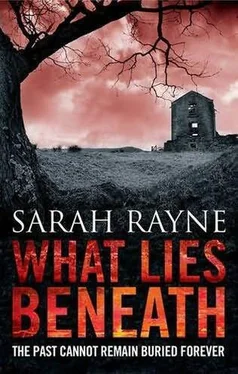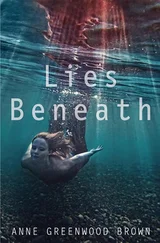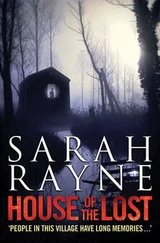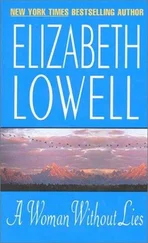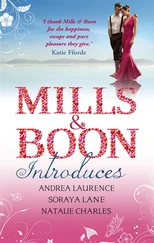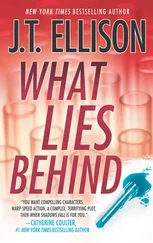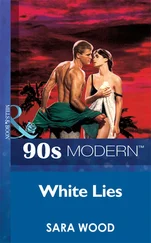Like the eyes of a devil, thought Crispian. Or is he? After a moment, he said, ‘I’d better find Jamie and tell him what’s happened.’
Gil made a gesture with his free hand as if to say, it’s up to you, but he released Crispian’s hand and went to his own room without speaking.
Edirne, October 1912
The false security soon ended. At the beginning of October martial law was proclaimed in Edirne, and Mehmet Sükrü Pasha, who was to command the military operations from Edirne, arrived at the fort. With him came soldiers and a hybrid crowd of people fleeing to the relative safety of the city. Crispian, with Gil and Jamie, went out to help with the influx of exhausted people whose villages had been ransacked and burned by the invading Bulgarians. Crispian found it heartrending to see how they clung to the few belongings they had managed to save, and even more heartrending that none of them complained. They hoped to return to their homes soon, they said. Migration was a legacy of the Prophet.
‘It’s a legacy I wouldn’t want,’ said Gil, when Crispian reported this. ‘And I’ve just heard that they’re going to impose a curfew on the city. It’ll come into force two hours after sunset each day.’
‘They’re saying the Pasha is trying to arrange for women and foreign visitors to leave,’ said Jamie. ‘In case we find ourselves in a siege situation.’
They looked at each other.
‘Could we possibly leave with them?’ said Gil at last.
‘We’d have to do it soon, while trains are still running,’ said Jamie. ‘If we leave it much longer we’ll really be trapped. Some of the soldiers are already saying they’re expecting orders to requisition wagons and carts. But where would we go?’
‘I don’t know. Presumably deeper into the Turkish countryside until we got to a British Embassy. And what about Sir Julius?’ said Gil. ‘He couldn’t make that kind of journey, or any kind of journey. Personally, I think we’re as well here as anywhere.’
Crispian said, ‘You two could leave. I’d have to stay here with my father.’
‘If you stay, I’m staying,’ said Gil at once. ‘Jamie?’
‘I certainly wouldn’t leave either of you here.’
‘There you are then,’ said Gil to Crispian. ‘All for one and one for all. And as Jamie says, where would we go? We’re a hundred miles from the coast, and even if we got there, we’d never get a ship, not now.’
At night, as they sat in the courtyard, they could hear gunshot. It sounded frighteningly near, but Gil thought that was just an illusion of the heat and stillness of the night. Several days later, wounded Turkish soldiers began to arrive, brought on carts and wagons, some of them already dying. Gil worked with the doctors, and Crispian and Jamie tried to help where possible, acutely aware of their ignorance, but at least able to act as messengers. Crispian organized a small team who knew the town and could fetch supplies. ‘While supplies still last,’ said one of the doctors, rather grimly.
It was around then that some of the soldiers began to use what Raif told Crispian and Gil was sulphur mustard.
‘Don’t let it get near you,’ he said. ‘Don’t even breathe the air. We don’t know very much about it yet, and we aren’t sure which side is using it. What we do know is that it causes the most horrific burns.’
‘What can we do for them?’ asked Gil.
‘Not very much. The poor wretches don’t even know they’ve been burned until hours later, by which time it’s often too late to do much to help them. We can’t bandage the burns – we can’t even touch them. Soldiers are a stoic race,’ said Raif. ‘But the men suffering from these burns cry out in agony for hours on end.’
‘But they recover eventually?’ said Crispian, listening with horror.
Raif shrugged. ‘It depends on the degree of the burn and the length of time they’re exposed to the stuff. It can lead to death, usually because the lungs become damaged. Also it can destroy the sight. There’s also a belief that even if they recover, they’re vulnerable to growths later in life.’
‘Cancer?’
‘Yes. It’s appalling stuff,’ said Raif, sounding angry. ‘Vicious and often fatal.’
The escalation of the war was a massive blow, but there were two more to come.
The first of these fell in early November when the Bulgarians, determined to take the stubborn town of Edirne, cut off the town’s water supply.
‘But there’s a river and there are wells,’ said the doctors firmly. ‘We’ll use those.’
The second blow was very different, and Crispian thought none of them could have foreseen it.
A Bulgarian plane had just flown over Edirne, showering leaflets, which Raif translated. It read, ‘We have surrounded Edirne with a thousand guns. Come and surrender.’
‘Will Edirne surrender?’ asked Crispian.
‘Not without a strong fight.’ Raif frowned, then in a voice Crispian had not heard him use before, said, ‘Mr Cadence, there is a different matter I have to raise with you.’
‘Yes?’ Crispian waited, expecting to hear something about his father.
‘It’s about your cousin. Mr James Cadence.’
‘What about him?’ said Crispian, slightly startled.
‘These last weeks he has often gone out by himself. Do you know where?’
‘In a general way. He’s got to know several people in the Jewish Quarter. He’s interested in their way of life, particularly their music. Why?’
‘An hour ago I was asked to talk to you. This is very difficult, but it seems it’s not only the Jewish people of Edirne your cousin formed friendships with. If the information is right, he’s made some very unwise acquaintances.’
‘What on earth do you mean?’
‘In any country, any city, in a time of war, there’s a very particular kind of occupation,’ said Raif, ‘undertaken by people who appear to be ordinary civilians. They would say, those people, that they contribute as much to a war as men fighting on a battlefield. They…’ he paused, apparently searching for the right words, ‘they give information about the people among whom they live. They give it to the enemies of those people. You understand what I’m trying to say?’
‘No, I don’t,’ said Crispian. ‘Clearly you’re talking about spies, but I don’t see what that’s got to do with Jamie.’
‘Mr Cadence, your cousin was this morning caught passing information about the military activities inside this fort to a known agent of the Bulgarian armies.’
Crispian felt as if an invisible hand had flung icy water into his face. He said, ‘That’s impossible. There must be some dreadful misunderstanding. You must have the wrong information – or someone’s playing a cruel trick.’
‘The Pasha’s men who brought in the intelligence do not think there is a trick. They are sure the charge against Mr James Cadence is based on sound fact. They will try to find out more, but you must understand there are larger issues for them to deal with. One Englishman…’ Raif made a gesture, indicating that Jamie’s transgression, if transgression there had been, was not very high in the pecking order. ‘I will ask them to talk to you,’ he said.
‘I think you’d better, and as soon as possible.’
‘I’m very sorry indeed about this,’ said Raif, ‘and I hope it will be found a mistake. All of us here like you. We have come to respect and trust you.’
‘Jamie wouldn’t act as a spy,’ said Crispian. ‘It’s a ludicrous idea. He’s a gentle person. Someone must have misunderstood something he said or did. The language difficulties could have caused a genuine error. Or perhaps someone even wanted some kind of revenge on him – or on me or my father.’
Читать дальше
